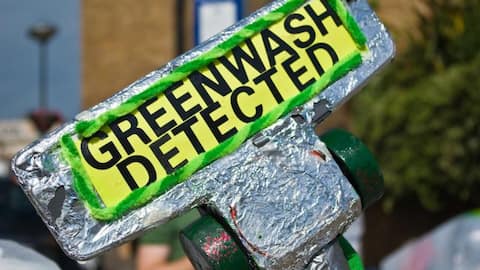Greenwashing: Demystifying not-so-green side of environmental marketing
What's the story
In today's world, where environmental concerns are at the forefront of public consciousness, companies are under increasing pressure to demonstrate their commitment to sustainability. The surge in demand for eco-friendly options has led to a phenomenon known as "greenwashing," casting doubt on whether many companies are truly being environmentally friendly. Let us understand what greenwashing means and how it works.
About greenwashing
Marketing spin
Greenwashing aims to capitalize on the growing consumer demand for environmentally friendly products and services. It involves the use of misleading language, imagery, or claims to give the impression that a company or its products are more environmentally friendly than they are. Greenwashing is like "whitewashing," where false information is used to hide wrongdoing, errors, or unpleasant situations to make them appear less severe.
False perception
Vague language
Using terms like "eco-friendly," "green," or "natural" without substantiating details or certifications can create a false perception of sustainability. Greenwashing often relies on vague language and misleading imagery, such as lush forests or clean waterways, to evoke a sense of environmental responsibility. However, these visuals may not accurately reflect the product or the company's true environmental impact.
How it works
Capitalize on confusion
Many consumers lack the time, expertise, or resources to thoroughly investigate the environmental claims made by certain companies. With the concept of greenwashing they capitalize on this confusion by presenting superficial or misleading information that appears credible at first glance. In some cases, companies engage in greenwashing to deflect attention from their environmental violations or shortcomings.
How to spot greenwashing
Independent assessment
In cases of greenwashing, companies often lack evidence to support their claims. While verification can be challenging, turning to third-party research and analyst reports, as well as examining the product's ingredients list, can help. Genuine green products are typically certified by recognized organizations, with clear labeling indicating such certification. These independent assessments can provide valuable insights into a company's environmental practices and green claims.
Examples
Trash bag
Labeling a trash bag as "recyclable" is misleading because, in reality, they rarely undergo recycling due to how they're disposed of alongside regular trash. This misrepresentation falsely suggests an environmental advantage where it does not truly exist. Without proper separation and recycling infrastructure, the claim of recyclability lacks substance and can deceive consumers about the product's actual environmental impact.
